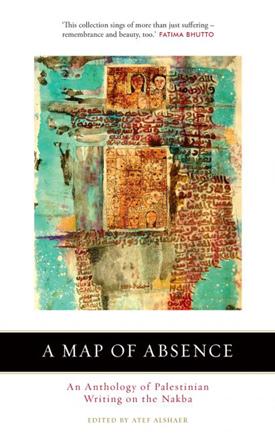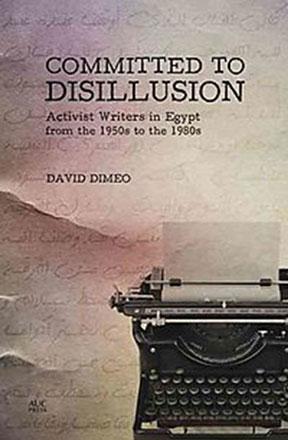You are here
Palestinian fiction and universal values
By Sally Bland - Aug 18,2019 - Last updated at Aug 18,2019

The Palestinian Novel: From 1948 to the Present
Bashir Abu-Manneh
UK: Cambridge University Press, 2018
Pp. 235
Bashir Abu-Manneh’s study of the Palestinian novel from the Nakba until the Oslo accords presupposes a tight link between literature, historical events and politics, influencing both writing style and content. In the light of the Palestinian reality of either living under occupation or as geographically dispersed refugees, one might expect a narrow focus on their own situation, but Abu-Manneh found that Palestinian fiction has a pan-Arab perspective and “the restlessness of dispossession”.
While their subject matter indeed reflects their situation, the perspective of major Palestinian novelists is much broader. “Rather than express narrow particularism, they affirmed universal categories: Humanism, self-sacrifice as collective redemption, mutuality, reciprocity and individual self-realisation”. (p. 2)
Abu-Manneh is a lecturer in postcolonial literature and Director of Centre for Colonial and Postcolonial Studies at the University of Kent. In his view, “The Arab post-nakba novel is profoundly intertwined with this anti-colonial generation and its modernising values, whether liberal, social, or feminist”. (p. 20)
To prove his point, Abu-Manneh analyses the writing of Jabra Ibrahim Jabra, Ghassan Kanafani, Emile Habiby and Sahar Khalifeh, charting the relationship between Palestinian history and aesthetic form and how this relationship changes over time. His stated aim is “to develop a materialist framework for interpreting the Palestinian novel that combines… historical processes (including social and political developments) and literary form… “ (p. 4)
To connect the political ruptures affecting the Palestinians to shifts in novelistic form, the author measures select works of the four Palestinian novelists up against the literary criticism theory of Georg Lukacs, especially his “The Historical Novel” (1937). Abu-Manneh finds a precedent for using Lukacs in the fact that Ghassan Kanafani published a positive evaluation of this Hungarian Marxist in 1971, while leading Palestinian critic, Faisal Darraj, has also written about his philosophy of literature.
Abu-Manneh also refers to the philosophy of Theodour Adorno, Frederic Jameson, Raymond Williams and other philosophers in analysing the Palestinian novel. Some of these sections can be difficult to understand for the non-academic, but the bottom line is distinguishing between historical realism and modernism--why a given author chose the one or the other, and what this choice indicates about his or her political position.
While some thinkers insist that writers should free themselves entirely from nationalism or even politics as a whole, Abu-Manneh explains why this issue is different for the Palestinians since they are still under a settler-colonial yoke (although none of the four novelists confine themselves to nationalism). Others count modernism as “the sole emancipatory aesthetic”, whereas for Palestinians, according to Abu-Manneh, “modernism is symptomatic of, yet resistant to, the failure of the possibilities of both political and human emancipation, and it is, in fact, realism that is strongly connected with emancipatory desires… realism and emancipation are born together in the Palestinian novel”. (p. 11 and p. 24)
Sandwiched between the introduction and the conclusion are chapters devoted to each of the selected Palestinian novelists, tracing their literary development and highlighting their political commitments. Of the four, Jabra is the one most often considered a modernist, but Abu-Manneh shows that realism was the basis of most of his early works, noting, however, that Jabra, like the other three, was a moderniser in terms of the values he promoted in his writing.
Revolutionary ethics are most prominent in Kanafani’s stories that remain rooted in realism even as he experimented with modernist elements in style early on, as in “All That’s Left to You” (1966). Writing about Habiby’s masterpiece, “The Pessoptimist, Abu-Manneh concludes, “nobody has captured the national rupture and severance of 48 Palestinians, or their political and material confinement, better than Habiby”, who was deeply imbedded in realism even as he introduced elements of fantasy. (p. 98)
Sahar Khalifeh’s novels adhere to the historical realism tradition in Palestinian literature, but they go much further: “No Palestinian writer has subjected Palestinian society to as radical a political and social critique as Khalifeh has done since she began writing in the early 70s”. (p. 116)
It is noteworthy that none of the novelists covered in this study entered the post-modernist phase.
Due to Abu-Manneh’s insistence on linking literature and political reality, his analysis of the four selected writers also offers a review of major turning points of Palestinian history. His book is also the most comprehensive analysis to date of most of the selected writers, at least in English, to this reviewer’s knowledge. Though some passages may be difficult for non-academic readers, the effort is well worth it. The book has an extensive bibliography of use to anyone wishing to further research the topic.
Related Articles
A Map of Absence: An Anthology of Palestinian Writing on the NakbaEdited by Atef AlShaerLondon: Saqi BooksPp.
AMMAN — Feminist literature tends to provoke both male and female Arab readers as it aims to shake the status quo, novelists and literary ex
Committed to Disillusion: Activist Writers in Egypt from the 1950s to the 1980sDavid F.


















